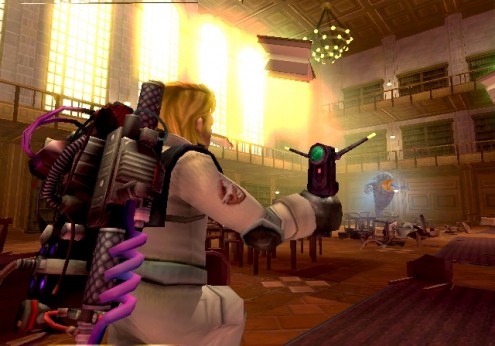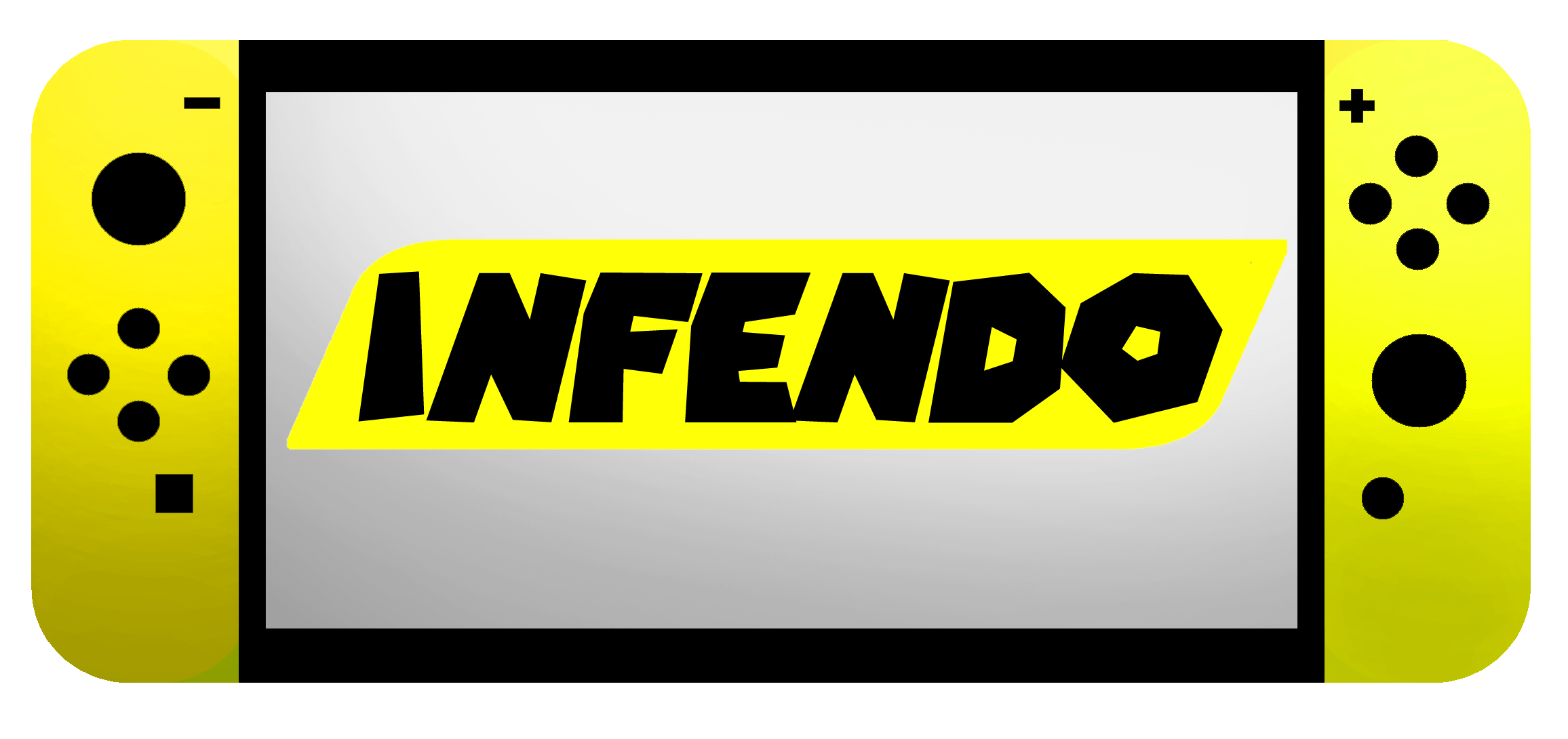
By Jeff Mills, producer for Ghostbusters (June 16)
At GDC in March 2007, Red Fly Studio had only been in business for about three months. Studio founders Dan Borth and Kris Taylor knew that we had to start immediately preparing for the future beyond our first title (Mushroom Men). We set out for the Game Developer’s Conference in San Francisco where we met with the top brass of half a dozen of the biggest game publishers in the industry.
The one publisher who seemed surprisingly uninterested in our demo was Vivendi Universal Games. They sat impatiently through our presentation, and as soon as the standard demo spiel was done, they drew us away from the screen and quickly got to the point. They had a job, and they wanted Red Fly Studio specifically to do it.
Before I left Terminal Reality to help Dan and Kris start Red Fly Studio, I had been part of production on Ghostbusters, the project TRI had been developing in utter secrecy for the previous year. Because of my foreknowledge of the project, the publisher could cut right to the chase: The publisher wanted TRI to focus their entire attention on the Xbox 360 and PS3 version of Ghostbusters without concerning themselves with producing a separate Wii version as well. We were already licensing Terminal Reality’s Infernal Engine to produce Mushroom Men, and our close ties to TRI (Dan and Kris worked there along with me back in 1999) made us ideally suited to produce Ghostbusters for Wii. And it was Ghostbusters, after all: a dream job. Right?
“No way!” came the unanimous response from Red Fly Studio.
If the release date for Ghostbusters had been after Mushroom Men’s release date, then maybe we could have done it. But the publisher required that we ship this new title at the same time as our current project. Pushing a single title to completion is challenging enough, but shipping two titles simultaneously is a monumental undertaking. The veterans at RFS had seen a dozen studios explode by growing too quickly, taking on jobs that they couldn’t handle. We knew better. We sadly but politely declined and bade them farewell, wishing that the timing had been better.
A couple of hours later, we received a call requesting a follow-up meeting immediately. So we met with four executives from the publisher as well as TRI’s top brass. It was a crowded meeting. Apparently that’s how many people it takes to force the stars to align when they don’t quite match up on their own. With the publisher’s combined executive influence and TRI’s pledge to increase their support, we agreed to join the project.
Rapid Development
The first three milestones of Ghostbusters were accomplished without a dedicated staff. Thanks to the proven workflow and universal, modular code developed for Mushroom Men by hotshot programmers James Clarendon and Kain Shin, we were able to split our time to prototype the completely unique gameplay of Ghostbusters. Everything about the two games was different (camera, combat, interface) but the Infernal Engine is versatile, and every improvement we had made during the early production of Mushroom Men was forward-thinking, allowing us to enjoy the benefits of that technology in future game development. (Or, as it turned out, tandem game development.)
Our concept artists Frank Teran and Thomas “TAS” Szakolczay went to work right away twisting the studio’s unique art style to wrap around the Ghostbusters franchise. Characters and environments for the Wii version of the game would have to be built from scratch. Instead of making the same fatal mistake made by most developers when porting games to the Wii, we wouldn’t even attempt to make our game look like TRI’s visually. Photorealism on the Wii is not practical to attempt, especially in such a short amount of time. Red Fly Studio was built on the strength of our artistic vision, and we applied that to this beloved franchise from our youth.
When the time came for in-game art assets, we were fortunate to be joined by Bill Daly, with whom we had worked as far back as 1996 at 7th Level. Not only is he a fine artist, he was also able to quickly and completely wrap his head around the methodology we would have to employ in creating art for Ghostbusters.
We designed Ghostbusters to be highly modular, knowing that our staff and time would be limited. We prototyped the entire game with just two environment artists, several man-months of outsourced character art and a small portion of the programmers’ time to accommodate the changes to camera, combat and other systems. The whole time, we were constantly interviewing new talent to bring the Ghostbuster team up to full size by the time we completed pre-production.
The publisher had agreed back at GDC that the Wii version of Ghostbusters should be its own unique product, standing on its own apart from TRI’s next-gen version in more than just art style. It was exciting to develop Ghostbusters for the Wii properly from the ground up. We devised an art style that maximized the Wii’s potential without overwhelming it or seeming reduced, filtered or watered down. We built the most obvious control scheme that makes players feel like members of the movie’s cast, wielding the erratic proton packs to direct that distinctive orange lightning across the screen.
Miraculous Tragedy
Every developer’s lament: “If only we had a couple more months to polish this!” It doesn’t matter how long you’ve worked on a project, there’s always some little tweak or additional content or wishlist item that you want to squeeze in, but schedules are what they are, and we wrapped up production on Ghostbusters mere weeks before The Merger. We were satisfied with the results of our hard work. We had made a fun game.
Every developer’s nightmare: Ghostbusters was punted out the door because it didn’t fit into the business model of its newly-merged mega-publisher. Every veteran at the studio had suffered such tragedy at some point in their career. It’s just something that happens in this industry. But we took it in our stride, knowing that a property as awesome and popular as Ghostbusters wouldn’t be left to gather dust for long. Sure enough, in a double-whammy of good luck, Atari swooped in to rescue the discarded title. But just as fortunate as the resurrection itself was the date at which it occurred.
Every developer’s dream: Instead of rushing the game out the door to compete with the dozens of other top-tier games flooding the market for the holiday season, Atari wisely extended the schedule. With the 25th anniversary of the movie coming up in just a few months, Atari recognized that working with Sony Pictures Consumer Products on a combined Blu-ray/DVD and videogame release would maximize the potential of the product . By picking up Ghostbusters when they did, Atari blessed us with the one thing every developer wishes for at the end of a project: More time.
Ghostbusters the Videogame has a new publisher who understands what it is about and what it’s capable of becoming. Their excitement for the game is unmatched. Dustin Dobson, Creative Lead, drives the team on to success after the brief terror of floating in limbo before Atari saved the game.
The story of the Wii version of Ghostbusters is enveloped in good fortune and lucky timing. We were given opportunities that most studios are not. We’re continuing production on Ghostbusters right now: fixing, polishing and improving. As they did when the project was born, the stars have aligned once more to see to it that Ghostbusters the Videogame sees the light of day and satisfies everyone who saw the movie in their childhood and wished to be part of that story.
